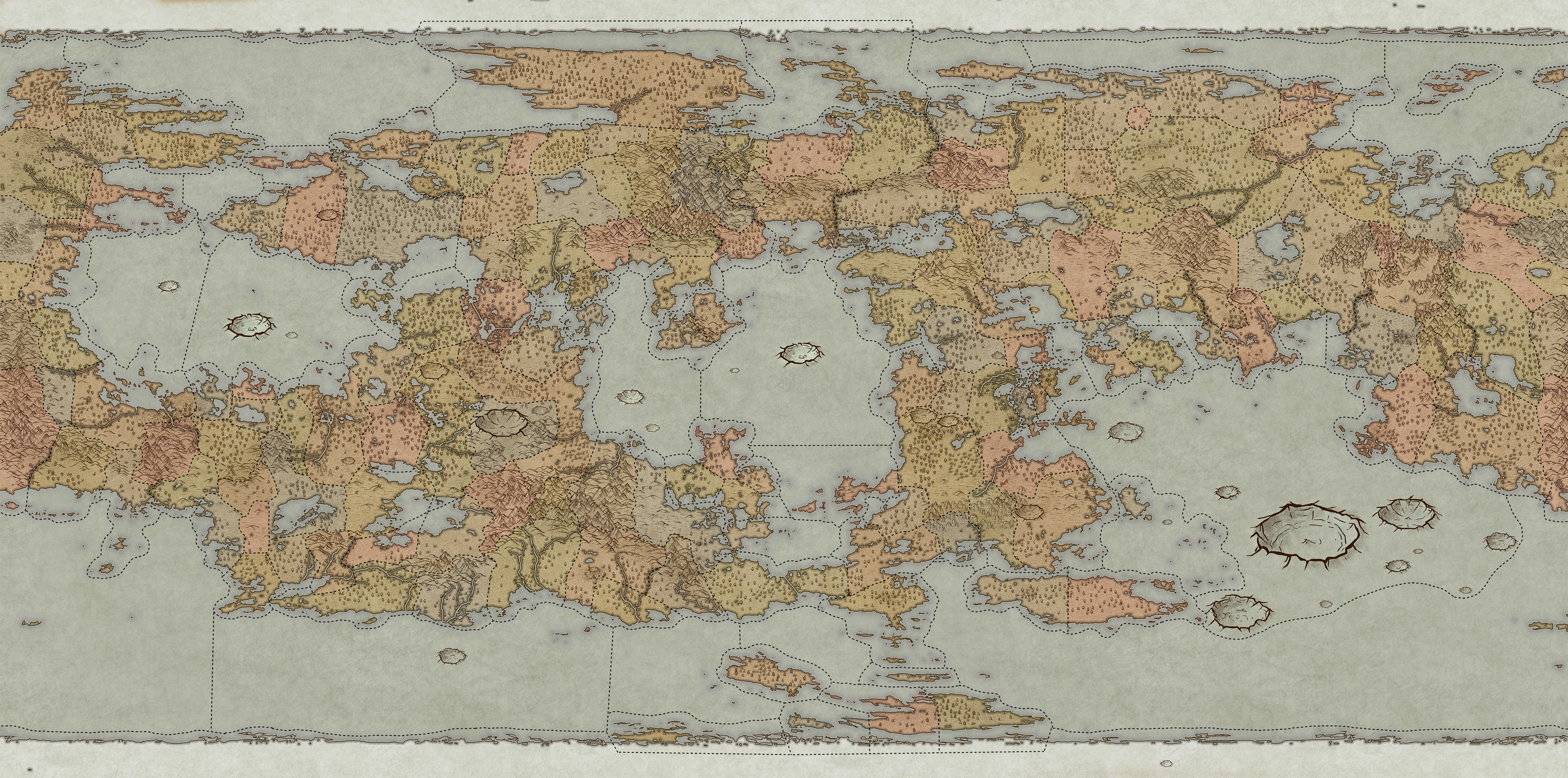Dragon
DragonsDragons are the most variable species on Aanrah, ranging in a vast variety of shapes and sizes. Capable of living forever, dragons are capable of leaning into divine intuition and power without ever stepping into a mantle of divinity, making them one of the most powerful and feared creatures on Aanrah. Since Baza's disappearance, mortal kind has lashed back at dragons with their newfound power, hunting these powerful creatures down to take back years of servitude in dragon's shadows. In the current day, pure blooded dragons are largely considered extinct.
The Divine Born
Physical
Dragons are the most variable species, ranging in shape and size wildly. At minimum, a dragon as four limbs, with eight at maximum. Dragon body shapes are often defined as the following, with 'limbs' being used to designate non-wing appendages (arms or legs) -- (Drake) - Two pairs of limbs.
- - Two pairs of wings
- (Wyvern) - A pair of wings and a pair of limbs
- - Three pairs of limbs
- - Three pairs of wings
- - Two pair of wings and a pair of limbs
- (European) - Two pairs of limbs and a pair of wings
- - Four pairs of limbs
- - Four pairs of wings
- - Two pairs of wings and two pairs of limbs
- - Three pairs of limbs and one pair of wings
- - Three pairs of wings and one pair of limbs
Dragons usually come in what they consider 'five sexes' - drake, drake-lead, true lead, hen-lead, and hen. See below.
Age & Reproduction
Dragons average to about 800 years, though can theoretically live forever. Dragons reach their juvenile phase at around 50, adulthood at 100, and are considered old around 500.
Dragons usually lay a clutch of 1 to 6 eggs, though they can lay up to 10. It is not uncommon for eggs to not hatch, though there is a higher mortality rate among hatched dragonlings than unhatched. Hybrid dragons - half-dragons - are uncommon on a global scale, but otherwise fairly common. Dragons are known for their ability to reproduce with anything, making them the most prolific hybrid species on Aanrah.
Immortality
As dragons begin to age, they are capable of leaning into their inherent divinity and magic - and through this, become something akin to demigods without truly ascending. Older dragons are capable of honing their divine aspect, resulting in a semi-apotheosis. While not quite full demigods or even quasigods, they become impervious to death through anything but slaying, often requiring more effort than a normal mortal might. Additionally, they find themselves no longer gaining sustenance from normal food. While starvation will no longer kill them, immortal dragons must consume their new food source in order to continue use of their power or to continue growing. This new food source is not something chosen, and is something the dragon will instinctually understand the need to eat. It may not be physical either - it can be as literal as coal, or as metaphysical as suffering.Sex & Gender
Dragons consider their kind of have five sexes - drake, drake-leads, true leads, hen-leads, and hens. Generally speaking, these exist on the scale between "can fertilize" (drakes) to "can lay eggs" (hens), with true leads being capable of both, and drake or hen-leads having genital structure suggesting of both without capabilities of one. Terms are used rather loosely among dragonkind, and gender is considered highly mutable. Pure dragons are capable of changing sex given time, and though it would take several hundred years to fully transition from a drake to a hen with no signs of ever having been previously a drake, it is possible.Sex can be influenced by the way in which eggs are incubated. Eggs incubated at what might be considered a 'warm' temperature for the dragon tend to hatch hens, while eggs hatched at a 'cold' temperature tend to hatch drakes. Varying and fluctuating temperatures tend to cause leads.
General Culture
Dragons are, by nature, usually loners or keep to small groups. They are domineering and tend to prefer to lead than to serve, which leads to vicious in-fighting in dragon groups. Dragons were once known for being highly territorial and often controlling swaths of land within existing countries or kingdoms, exacting their own rule as they pleased. Since the rise of mortal magic, dragons have been nearly wiped off the map. Only two places on the surface remain where pure blooded dragons are known to openly live - the Gezralahdnat Territory & Tafrahvrati, with a slightly larger population known to exist in the Underground and the Underworld. Much of dragon culture as it was known, as such, has been wiped out.In the modern era, dragons and half-dragons are met with contention and outright hate, often hunted or driven out of the country. In the underground, they are met with much less hate, and are often accepted as any other race might be.
Traits
Pretty opened ended how do I even write this.
Lifespan
800 years
Average Height
20'+
Geographic Distribution
Related Organizations
Related Ethnicities



Comments